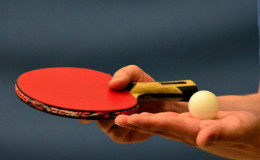Tokyo: Controversial material on "comfort women" that sparked diplomatic tension between Japan and South Korea is being removed from a hotel ahead of the 8th Asian Winter Games (AWG) in this country, a media report said.
The APA hotel is designated to host athletes during the AWG to be held in Sapporo and Obihiro between February 19 and 26.
The hotel recently sparked fury among Chinese and South Koreans for placing history-distorting books in its guest rooms, Xinhua news agency reported.
The books, authored by Seiji Fuji, the pen name of APA Group CEO Toshio Motoya, has denied that the Nanjing Massacre and the forced recruitment of "comfort women" ever happened.
Comfort women were women and girls who were forced into sexual slavery by the Imperial Japanese Army in occupied territories before and during World War II.
The process of removing controversial books from its guest rooms has already started and will complete before the athletes check in, said Nabeshima, a staff of the organising committee.
To save costs, the organising committee chose two local hotels as official designated hotels for the athletes, and the APA is one of them.
The Chinese Olympic Committee (COC) urged the organisers of Games to solve the "APA hotel problem" swiftly and properly.
The COC pointed out that the APA Group's behaviour violates the rule 50 of the Olympic Charter, which stressed that the athletes should compete "without being drawn into political controversies".
Read more: After football, Tata Trusts focus on grassroots hockey
It also says that the competition should "provide a Games environment that lets athletes compete without distractions from divisive and emotional issues outside the world of sport."
South Korea's top sports body Korean Sport and Olympic Committee (KSOC) also demanded Japan not to accommodate its athletes taking part in the 2017 AWG in the right-wing Japanese hotel chain.
The organising committee made arrangements for athletes from China and South Korea to stay in the Sapporo Prince Hotel during the games at the request of top sports bodies of the two countries.
The "Comfort Woman" statue near the Japanese Consulate in Busan, stoked old tensions between Japan and South Korea in January. The Comfort Woman is a silent reminder of the plight of hundreds of thousands of women forced into sexual slavery by Japan during World War II.










